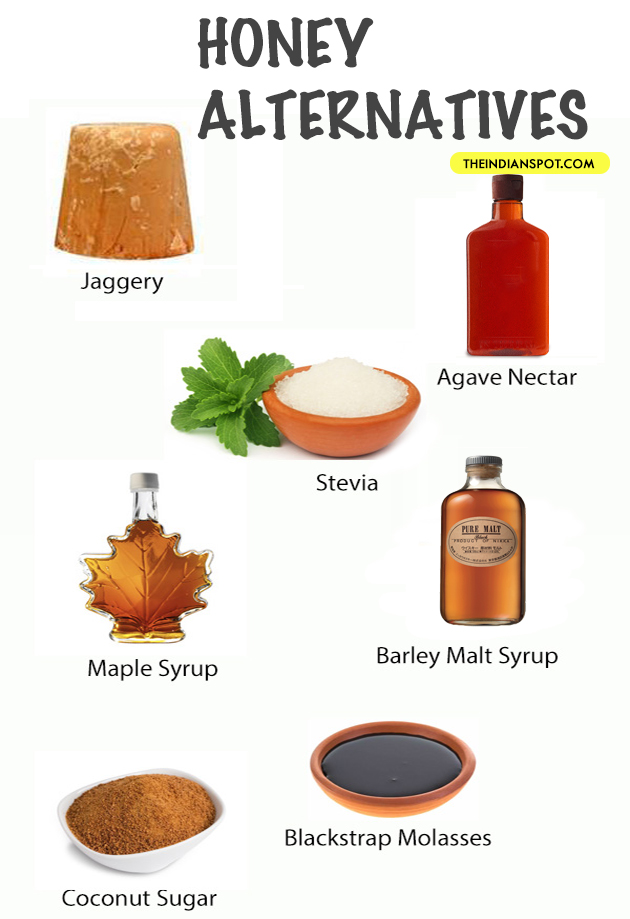Starting
your challenge is to ...
In this week's challenge you must Not use Honey . Honey is made by bees for bees, and their health can be sacrificed when it is harvested by humans. It is probably the product most frequently mistaken as vegan-friendly. There is a common misconception that honey bees make their honey especially for us, but this couldn’t be much further from the truth. Honey is the energy source of bees,without it they would starve. Unlike bees, humans can thrive without honey in their diets. Luckily, there are a whole host of readily-available vegan alternatives for those with a sweet tooth. Date syrup, maple syrup, molasses, butterscotch syrup, golden syrup and agave nectar are all viable options, whether you need a product for baking, cooking, as a sweetener for drinks, or to eat a spoon of out of the jar at the end of a long day.Honey is high in calories, contains a lot of natural sugar and is definitely not vegan.
-
Conventional beekeepers aim to harvest the maximum amount of honey, with high honey yields being viewed as a mark of success. When farmers remove honey from a hive, they replace it with a sugar substitute which is significantly worse for the bees’ health since it lacks the essential micro-nutrients of honey.
-
In conventional beekeeping, honey bees are specifically bred to increase productivity. This selective breeding narrows the population gene pool and increases susceptibility to disease and large-scale die-offs. Diseases are also caused by importing different species of bees for use in hives.
-
These diseases are then spread to the thousands of other pollinators we and other animals rely on, disputing the common myth that honey production is good for our environment.
-
In addition, hives can be culled post-harvest to keep farmer costs down. Queen bees often have their wings clipped by beekeepers to prevent them leaving the hive to produce a new colony elsewhere, which would decrease productivity and lessen profit.
-
Honey’s popularity shows no sign of slowing. The honey industry, like many other commercial industries, is profit-driven where the welfare of the bees is often secondary to commercial gain.
-
Mass breeding of honeybees affects the populations of other competing nectar-foraging insects, including other bees. Overwhelmed by the ever-inflating quantities of farmed bees, the numbers of native bumblebees have declined.
-
The importing of honey into the UK also increases our carbon footprint through the emissions associated with transport. Of the honey consumed in the UK, 95% of it is imported, mostly from China and Turkey.

- JAGGERY
Jaggery is also known as medicinal sugar as it cures health issues like constipation, indigestion and cough. It’s popularly known as Gur in India and is especially given to pregnant women to strengthen her immune system. Just melt the hard jiggery to obtain it in liquid state. The powdered form can be used in day to day activities.
- AGAVE NECTAR
Agave nectar is the closest honey alternative due to similar texture, consistency and taste. It comes from blue agave plant but is less viscous than honey. This too can be used in any dish- on top of pan cakes, in desserts, on cakes etc.
- STEVIA
It is known as meethi patti in Hindi. It is usually recommended to people who are on weight loss programs or people who are suffering from diabetes. It is low in calories and protects us from stomach acidity, tooth decay and high blood pressure. It is very economical and can be easily available in any general store.
- MAPLE SYRUP
Maple syrup is made from sugary fluid in the maple trees and is a 100% natural sweetener. It is low in calories and great for those trying to avoid sugar in order to lose weight. Use it in any dish or smoothies or baking.
- BLACKSTRAP MOLASSES
For every cup of sugar or honey in your recipe, use 1 and 1/3 cup of blackstrap molasses. It is extracted as a by-product during the third cycle boiling of sugar cane juice during the sugar-making process. It contains very low quantity of sugar and is high in minerals, vitamins, iron, potassium and calcium.
- COCONUT SUGAR
Coconut sugar is made from sap which is the liquid that the coconut plant oozes out. A cut is made to the flower of the coconut plant and the entire liquid is then collected in a container. The liquid is then set to boil till the water is completely evaporated. The refined coconut sugar is ready. The coconut sugar contains more nutrients and minerals when compared to the normal granulated sugar or honey.
- BARLEY MALT SYRUP
Barley malt syrup is a sweetener produced from sprouted malted barley. It is not as sweet as honey but makes a great alternative. It is rich in minerals and vitamins, is dark brown in colour and stickier as compared to honey.
High Time to Stop Managing the Bees - Learn more here.
Why are Bees Important? - Learn more here.
Why don’t vegans eat honey? - Learn more here.
This challenge was closed on 12/29/2019